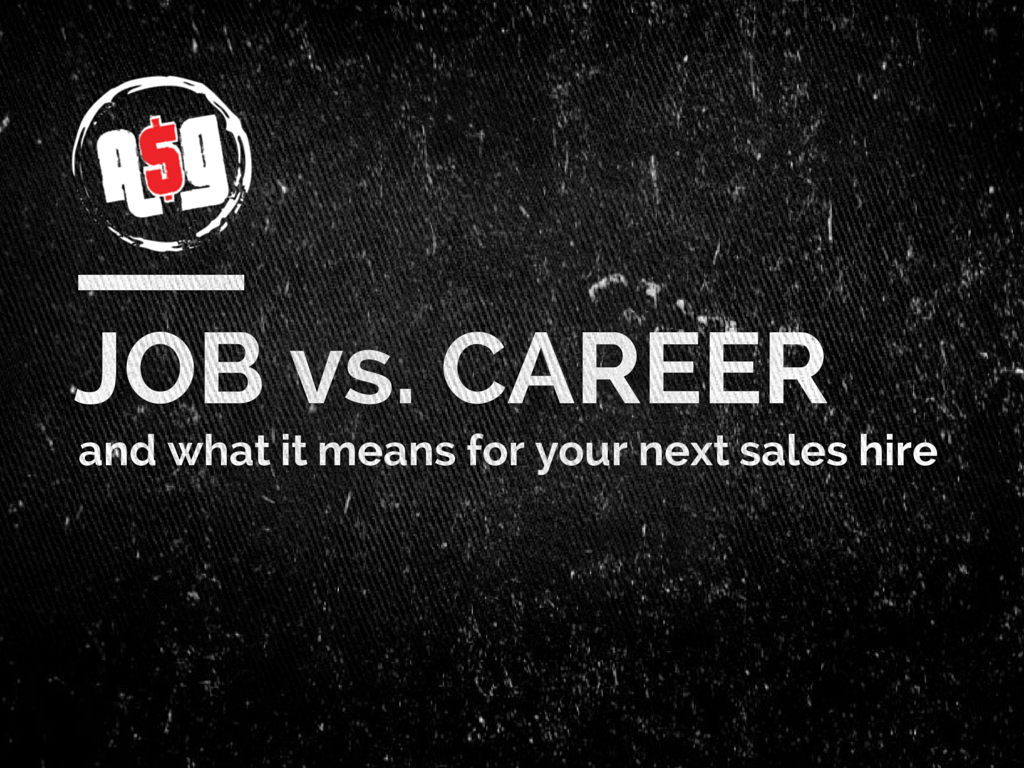https://www.youtube.com/watch?v=SgXhW96KGtM&feature=youtu.be When you have a career, “…there ain’t enough time in the day.” There’s one distinction. Everyone can relate to that. Let’s dig a bit deeper. Thanks Chris, for the opening act. 🙂 Jobs and careers are two very different things. First, jobs are usually distinguishable by how they relate to you chronologically. Our first jobs are usually considered just jobs by most people. My first job was at Chick-Fil-A. Ohh how I loved that greasy chicken haven. _______insert sarcastic emoticon…actually after working there for a few months, the smell of a Chick-Fil-A made me cringe. Didn’t eat at the place until a few years after college, and I worked there when I was 15. I know right? Second, a career is long term; it’s a progression toward a mastery goal in one’s profession. Most often than not, one’s jobs speak to the career that someone chooses to take. And sometimes, even though they are good at what they do, there is no distinction between a series of jobs vs. a career. In other words, many people go through life, specifically, their professional life, without having declared to themselves the mastery they are pursuing. What do I mean mastery? A mastery really define’s one’s career because it’s a long term goal that one strives to be the best at. Keenan says it perfectly: “In sales, performance goals are exactly as Dweck and Leggett suggest, measures of competence. In contrast people who are pursuing learning goals or mastery oriented people tend to see achievement as learning opportunities. They see learning goals as a way to acquire new skills or enhance their competency.” Read the entire post here: Sales Leaders – Is It Time To Get Rid Of Performance Goals? So what’s the main distinction between jobs and careers? It’s the same distinction people have with goals: Performance vs. Mastery People with performance goals have jobs; they may have good jobs, as there are plenty of people out there that are good at what they do. But do not measure themselves to a personal mastery goal. People with mastery goals have careers; they may not even be at a level of competence as a colleague who has more experience than him, but you can sure as hell count on him excelling at his craft, because he doesn’t see challenges and failures as evidence against his competence, but rather, a learning opportunity toward a larger mastery goal. Imagine a playground full of kids playing, you see one boy on the jungle-gym, he keeps falling, but laughs and tries again. Incessantly. Now you see another little boy in the sandbox building what looks like piles of sand, but the sand keeps falling and he gets frustrated and cries. What’s the big difference between the two boys? One doesn’t seem set back by his challenge, and even welcomes failure as he laughs and tries again. The other is set back, takes it personally, and cries. We’ve all seen the “sandbox boy” in the proverbial playground we call our workplace. Those sales people that get super upset when a deal doesn’t go as planned and has a real hard time of it. You say, “Get real. What normal person doesn’t get disappointed at a lost opportunity?” No one. The difference is what comes next. Why does all this matter to you? #1: Self-reflection and self-development for yourself. Gotta look out for #1. Take some time to assess what your mastery goal(s) is/are. It may provide some insight into what you really want to do in your career. Is that next job promotion worth it? Do you want to pursue a different role? Will you accept that new job offer on the table? And #2: If you’re a leader in your sales organization, ask your sales candidates which they relate to better, and how. Does he/ she have a mastery goal above performance goals? Or are they performance-minded? If they evaluate themselves based on performance, are they coachable? If you find the candidate is hard to coach, and tie themselves solely to performance goals, you may want to reconsider your options. You may find yourself dealing with a bad attitude and cynical outlook. Boom! There ya have it. Just another way you can find that “A” Player within yourself, or with your next sales hire. If you need help with that next hire, connect with a People Strategist. They’re amazing at what they do and you can take back some of that time “we ain’t got enough of”. ![]()
Job vs Career & What That Means For Your Next Sales Hire

